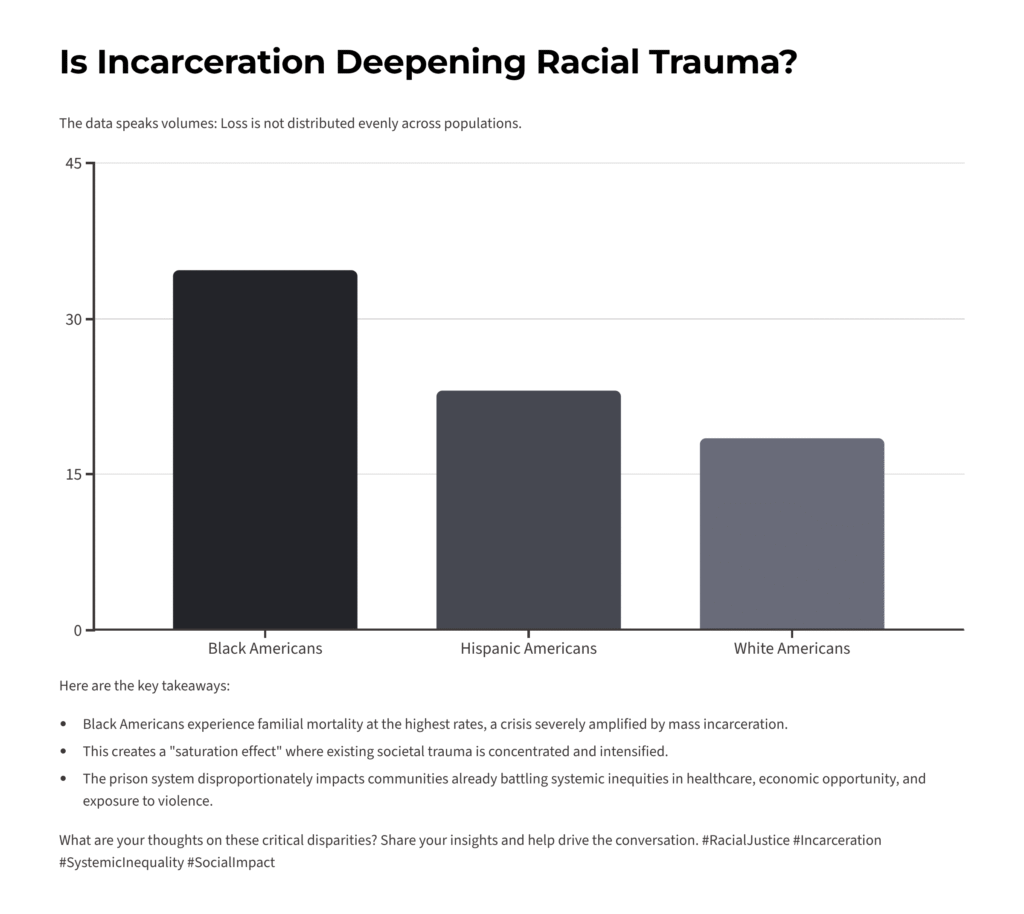When a loved one dies, grief can feel overwhelming. For incarcerated people, that grief is often invisible and unsupported a hidden sentence that compounds the trauma of imprisonment.
A Silent Crisis With No Clear Count
No one knows exactly how many people lose a family member while serving time. Even the federal government struggles to track deaths that happen inside facilities. A 2022 Senate investigation found the U.S. Department of Justice failed to count nearly 1,000 deaths in state and local custody in a single year. If the system cannot reliably count deaths behind bars, tracking deaths outside like a parent, child, or sibling is virtually impossible.
What Research Reveals
Academic studies paint a stark picture:
- Up to 41% of incarcerated men lose a loved one during their final year of confinement.
- Formerly incarcerated people are 30% more likely to lose an immediate family member by young adulthood than peers who have never been incarcerated.
- Black Americans bear the heaviest burden, with a 34.7% rate of immediate family loss, reflecting broader racial disparities.
These numbers highlight an overlooked public-health and racial-justice crisis.

Disenfranchised Grief Behind Bars
Grief in prison is rarely acknowledged. Experts call it “disenfranchised grief” sorrow that is institutionally and socially unrecognized. Expressing deep emotion can lead to punishment or isolation, so many people suppress their pain. Funerals, memorials, and bedside goodbyes the rituals that help us heal are often denied or come with humiliating restraints and high costs.
Even when “compassionate leave” is technically available, families typically must pay thousands for transportation and guard overtime. Many states bar people with certain sentences or security levels from attending at all.
Lasting Mental and Physical Impact
This unresolved trauma increases risks of depression, anxiety, insomnia, and even prolonged grief disorder. It can also hurt chances of successful re-entry, lowering employment prospects and straining already fragile family ties.
Pathways to Change
Policy experts and advocates recommend:
- National standards for death notification so families and inmates receive timely, humane communication.
- State-funded compassionate leave with individualized risk assessments and minimal restraints.
- Evidence-based grief counseling and peer-led support groups in every facility.
- Virtual funeral streaming can also provide critical connection when in-person attendance isn’t possible.
Why It Matters
Grief is universal. Ensuring that incarcerated people can mourn with dignity isn’t leniency it’s public health, racial equity, and basic humanity. By bringing visibility to this hidden sentence, we can push for reforms that honor both justice and compassion.
